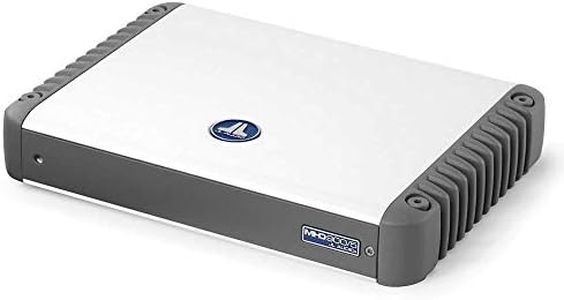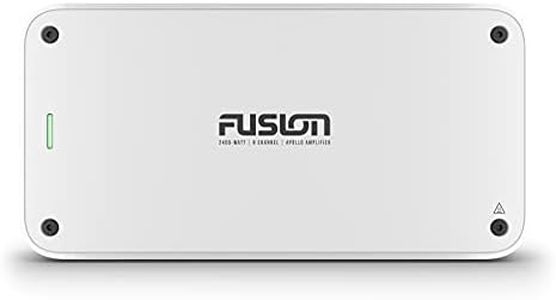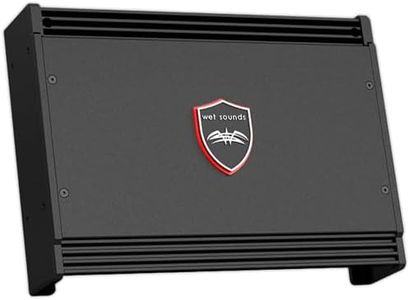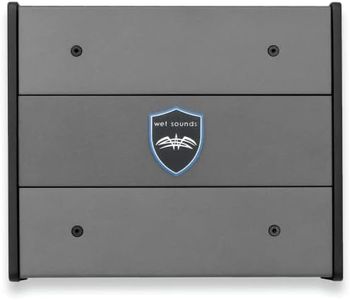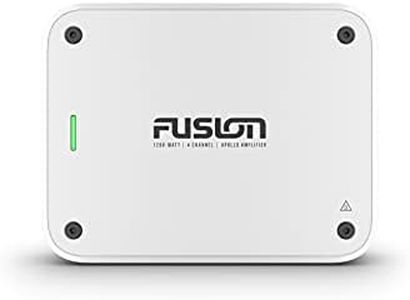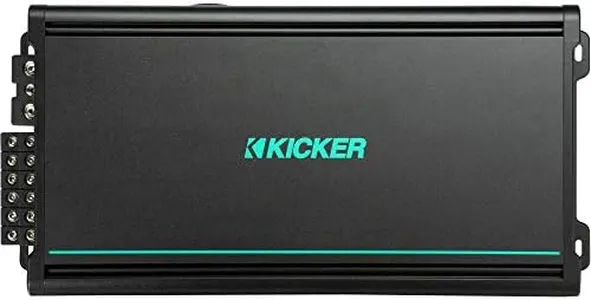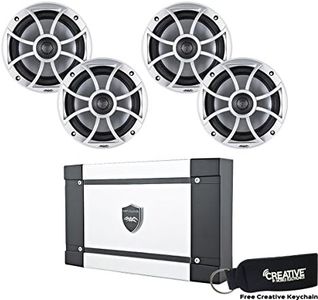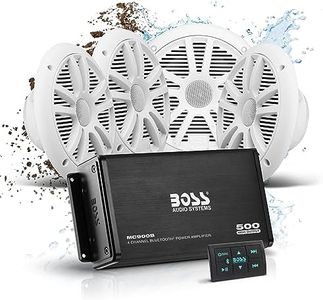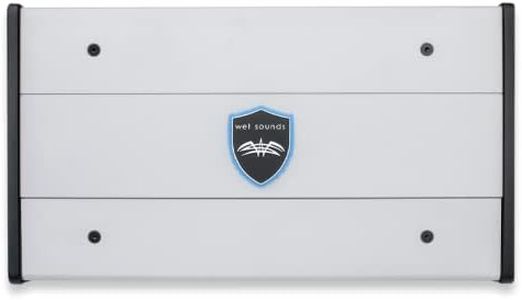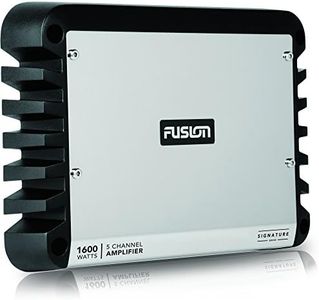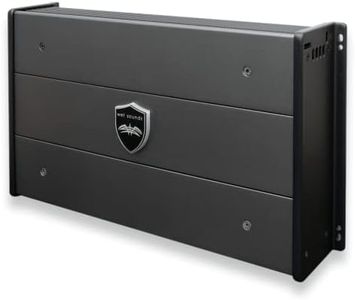10 Best Marine Amplifiers 2026 in the United States
Our technology thoroughly searches through the online shopping world, reviewing hundreds of sites. We then process and analyze this information, updating in real-time to bring you the latest top-rated products. This way, you always get the best and most current options available.

Our Top Picks
Winner
JL Audio MHD 5-Channel Full-Range Marine Amplifier, 900 Watts, 12V
The JL Audio MHD 5-Channel Marine Amplifier is designed for boat owners who want a powerful and reliable audio system. It offers four channels with 100 watts each for full-range speakers and a dedicated 500-watt channel for a subwoofer, giving you a total of 900 watts of power. This means it can deliver clear and strong sound both for music and bass, which is important on the water where background noise can be loud.
One of the main strengths is its marine-specific build. The amplifier uses stainless steel hardware and a special powder-coat finish to resist corrosion from moisture and salt, which helps it last longer in harsh marine environments. The controls are protected under a gasketed cover, adding extra durability. It also supports a variety of speaker setups thanks to its flexible load impedance handling. The amplifier runs efficiently thanks to Single Cycle Control technology and R.I.P.S, which help maintain clean sound and stable power without overheating. Speaking of heating, it is designed to manage cooling well, though it’s a freestanding unit that may need careful placement in your boat to ensure good airflow.
Installation is moderately straightforward, but keep in mind it weighs almost 7 pounds and is fairly sizable, so you’ll need enough space and proper mounting. It carries a solid 2-year limited warranty from JL Audio, which is reassuring. While it offers strong power and durability, some users might find the price higher compared to simpler models. Also, it’s not the smallest amplifier, so if space is very tight, it might be challenging to install. This amplifier is a great choice for boat owners who want a high-quality, durable marine amplifier with multiple channels and strong power output for a premium sound experience on the water.
Wet Sounds | SYN-DX6 | 6 Channel Class D Marine Amplifier
Most important from
14 reviews
The Wet Sounds SYN-DX6 is a solid choice for anyone looking to power multiple speakers and subwoofers on a boat. With 6 channels delivering 125 watts on 4 channels and 150 watts on 2 channels, it provides enough power for a rich, full sound that suits various marine audio setups. Its Class D design means it fits a lot of power into a relatively small and lightweight unit (18 x 12 x 5 inches, 9 pounds), which is helpful for tight installation spaces on boats.
One of the key strengths is its thermal overload protection, which keeps the amplifier cool and safe during hot days on the water, ensuring reliable performance in tough marine environments. The amp also meets a marine standard (CEA-2006), which is important for durability and safety around water. Users will appreciate the flexibility of running multiple speakers and subs simultaneously, making it great for customizing your boat’s sound system.
On the downside, while it offers good power, this amp might not be the best fit for extremely large boats needing very high wattage or audiophiles seeking ultra-high-end sound refinement. Also, at 9 pounds and its size, it’s not the smallest marine amp out there, so space-conscious buyers should measure carefully. The 2-year warranty adds peace of mind but is relatively standard. The SYN-DX6 balances power, protection, and size well, making it a dependable amplifier for most boaters wanting to upgrade their sound system.
Most important from
14 reviews
Fusion Apollo Marine Amplifier, 2400-watt 8 Channel (150-watt RMS per Channel), A Garmin Brand
Most important from
6 reviews
The Fusion Apollo Marine Amplifier is a solid choice for boat owners looking to power multiple speakers with clear, reliable sound. It delivers 2400 watts across 8 channels, allowing connection of up to eight speakers or a combination of speakers and subwoofers, which is ideal for creating a full, immersive audio setup on your boat. The Class-D design is energy-efficient, helping preserve your boat's battery life during long trips. It also includes an Easy Tune feature that automatically adjusts sound settings via a smartphone app, making it simple to get the best audio without needing technical expertise.
Installation is straightforward thanks to the included mounting bracket and screws, and its slim size fits well in marine environments. This amplifier is designed exclusively to work with Fusion's own DSP-enabled stereos and speakers, so it’s not compatible with other brands, which could limit your options if you don’t already have Fusion products. For users who already use or plan to use Fusion audio gear, this amp provides a powerful, integrated solution to enhance the marine audio experience.
Most important from
6 reviews
Buying Guide for the Best Marine Amplifiers
Choosing the right marine amplifier is crucial for enhancing your boating experience with high-quality sound. Marine amplifiers are designed to withstand the harsh marine environment, including exposure to water, salt, and humidity. When selecting a marine amplifier, it's important to consider several key specifications to ensure you get the best performance and durability for your needs.FAQ
Most Popular Categories Right Now
